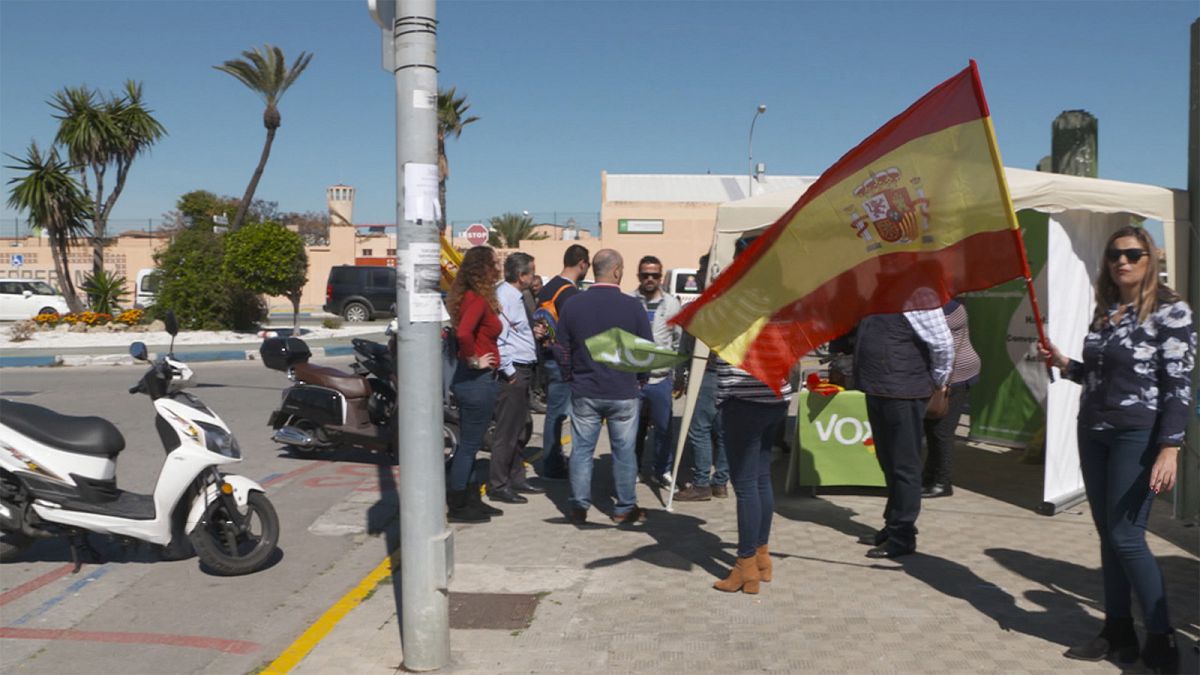In Spain, issues like border protection, crime, and unemployment, have propelled far-right Vox party into office in Andalusia’s last regional elections.
In the latest episode of Insiders, we visited the southern Spanish region of Andalucía where the far-right Vox party is gaining a foothold. Ahead of the upcoming EU election, we visited the town of La Linea de la Concepcion to speak to the local population.
A routine patrol takes place above the shores of the town of La Linea de la Concepcion. In recent months, the Spanish police have stepped up their response to narcotics trafficking. The area is a gateway for illegal drugs coming into Europe.
With unemployment at high levels, young people are able to make thousands of euros a day by drug smuggling. Euronews spoke to a local policeman about the problem
"Unemployment is very serious here, there is very little work, so it is easier – especially for young people – to engage in this type of activity."
Border protection, crime, and unemployment are issues that the far right has capitalized on. Issues like this have propelled parties like the far-right Vox into office in Andalucía’s last regional elections.
But what does the political party stand for in terms of policies?
Critics are calling the party stance anti-immigration and anti-feminist. Insiders’ Sophie Claudet sat down with our reporter on this story Valerie Gauriat to break down what drove Spanish voters to such extremes.
Sophie Claudet: We're back with Valerie who produced this very interesting report. Valerie, you could not talk to Vox local leaders. You had arranged everything before you travelled to Andalucía. What happened they refused to talk to you?
Valerie Gauriat: Indeed we had confirmed everything, we had a number of interviews and appointments and sequences. We were going to follow them around. And then at the last minute, they said well "no, it's a no-go". We had orders from Madrid headquarters. You know they're ordering a blackout on all media. And the reasons when we asked them well they had no reasons. They said well "we don't know". But what is quite clear it's a very crucial period for Vox ahead of the elections. They're very very cautious about media coverage. They've had mishaps after the regional elections in December. There has been very offensive comments by supporters on the field, very racist comments. And also there were tweets by one of the Andalucían leaders saying that immigrants were a threat to European identity or that he was proud to be branded a sexist. So they want to get rid of that image. But they're having a hard time with that. They've been supported by, well praised, by most populist far-right parties in Europe and also a former leader of the Ku Klux Klux Klan.
Sophie Claudet: Indeed. But Vox is campaigning on anti-immigration theories. It is campaigning saying that you know parity between men and women is unacceptable that subsidized abortion should be banned. I mean it is what it is. Why are they now changing tack? I mean what's going?
Valerie Gauriat: Well they claim that they are not racist. They are not sexist.
Sophie Claudet: But they say those things and it's on their platform.
Valerie Gauriat: They have said it but then its a new party and it's not very well structured yet and they still have to sort out you know who will be their candidates who will be their regional leaders. There are divisions within the party, within the party membership and not all of their programme is you know agreed to by all members and by all supporters and they're kind of taking the temperature of their potential electorate as well. And even amongst their supporters, people don't agree about everything including the plan to reform the law on gender violence which is one of the most protective for women in Europe and that doesn't go along well with a lot of women.


